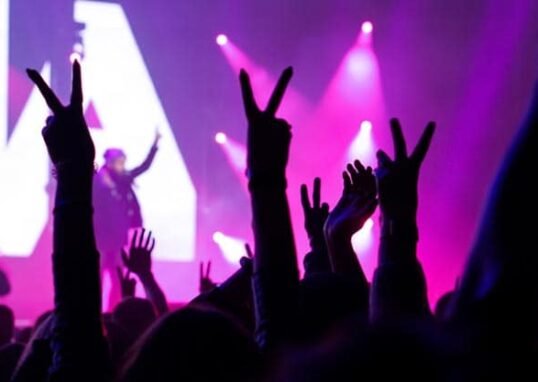Rock music has always been a genre driven by innovation and passion, with certain albums standing out as monumental milestones in its history. These albums not only defined their respective decades but also shaped the future of rock music. Here’s a look at some of the most iconic rock albums that have left an indelible mark on the genre.
1950s: Elvis Presley – Elvis Presley
Elvis Presley’s self-titled debut album, released in 1956, is a cornerstone of rock and roll. With tracks like “Blue Suede Shoes” and “Heartbreak Hotel,” Presley’s album helped to popularize rock and roll and set the stage for the genre’s future. The album’s energetic sound and Presley’s charismatic performances captured the rebellious spirit of the era, making it a defining record of the 1950s.
1960s: The Beatles – Sgt. Pepper’s Lonely Hearts Club Band

The 1960s were marked by The Beatles’ groundbreaking work, and Sgt. Pepper’s Lonely Hearts Club Band, released in 1967, stands as a quintessential album of the decade. This album revolutionized rock music with its experimental approach, elaborate production, and eclectic influences. With hits like “Lucy in the Sky with Diamonds” and “A Day in the Life,” it set new standards for creativity and artistic expression in rock music.
1970s: Led Zeppelin – Led Zeppelin IV
In the 1970s, Led Zeppelin’s Led Zeppelin IV (1971) became a landmark in rock music. Known for its heavy riffs, intricate arrangements, and powerful vocals, the album includes classic tracks such as “Stairway to Heaven” and “Black Dog.” This record not only solidified Led Zeppelin’s place in rock history but also influenced countless rock bands that followed, embodying the era’s blend of hard rock and blues.
1980s: Michael Jackson – Thriller
While primarily a pop album, Michael Jackson’s Thriller (1982) had a profound impact on rock music, especially with its integration of rock elements in tracks like “Beat It.” Featuring guitar solos by Eddie Van Halen, the album showcased how rock could blend seamlessly with other genres, pushing the boundaries of mainstream music and reflecting the eclecticism of the 1980s.
1990s: Nirvana – Nevermind
Nirvana’s Nevermind, released in 1991, is often credited with bringing grunge music into the mainstream. With its raw sound and angst-filled lyrics, this album captured the spirit of the 1990s and marked a significant departure from the polished rock of the 1980s. The album’s hit single, “Smells Like Teen Spirit,” became an anthem for a generation, symbolizing the era’s disillusionment and rebellious spirit.
2000s: The White Stripes – Elephant
Released in 2003, Elephant by The White Stripes marked a revival of garage rock. The album’s minimalist production and blues-influenced sound stood in contrast to the more polished rock of the early 2000s. With tracks like “Seven Nation Army,” which became a modern rock anthem, Elephant helped to reintroduce raw, energetic rock to the forefront of popular music.
2010s: Arctic Monkeys – AM
Arctic Monkeys’ AM, released in 2013, represents the evolution of rock into the 2010s. This album blends rock with hip-hop rhythms and lyrical themes of modern urban life. Hits like “Do I Wanna Know?” and “R U Mine?” demonstrate the band’s ability to merge different genres while maintaining a rock foundation, showcasing the ongoing innovation within the genre.
2020s: Tame Impala – The Slow Rush
As we progress into the 2020s, Tame Impala’s The Slow Rush (2020) stands out as a defining rock album of the decade. Known for its psychedelic influences and modern production techniques, this album continues the tradition of rock music’s evolution, reflecting contemporary themes while pushing the boundaries of genre.
Conclusion
These iconic albums not only defined their respective decades but also left a lasting impact on the rock genre. From the early days of rock and roll to the modern innovations of today, these records showcase the genre’s versatility and enduring appeal. Each album represents a unique moment in music history, highlighting how rock music has continually evolved while remaining a powerful force in popular culture.






